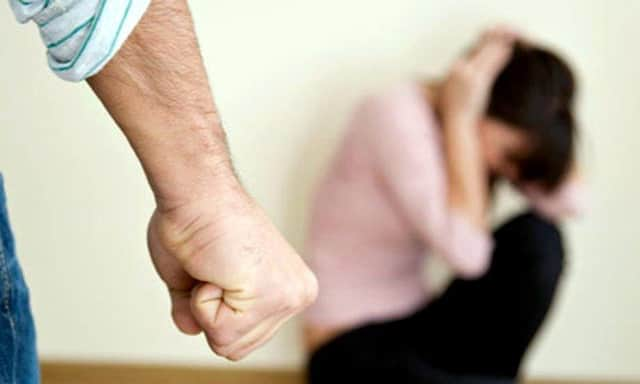Domestic abuse victims should get council house priority says new report


A review of social landlord practice, co-chaired by the Chartered Institute of Housing (CIH) Scotland and Scottish Women’s Aid (SWA) and published today, recommends using a “human rights approach to improve housing outcomes for women and children experiencing domestic abuse”.
Statistics show domestic abuse is the main cause of women’s homelessness in Scotland and the report makes recommendations to both prevent homelessness and to make leaving an abusive partner easier and safer for women – including ensuring a woman’s right to remain in her own home.
Advertisement
Hide AdAdvertisement
Hide AdThe review, commissioned by the Scottish Government, found that despite the publication last year of good practice guidance for social landlords, only a handful have implemented it or developed a domestic abuse policy.
As a result, the report also calls for councils and housing associations to have such policies in place and for regulatory changes so social landlords can be held to account if they do not safeguard the housing rights of victims of domestic abuse.
Further, it urges the Scottish Government to prioritise the passing of the Domestic Abuse (Protection) (Scotland) Bill before next May's Holyrood elections to ensure social landlords can take immediate steps to remove perpetrators from a tenancy.
Jo Ozga, policy officer at Scottish Women’s Aid and co-chair of the report and review group, said: “The coronavirus pandemic has highlighted a ‘shadow pandemic’ of domestic abuse. Lockdown measures have enabled perpetrators to enforce control, and highlighted that, even in normal circumstances, many women and children do not feel safe or secure at home.
"The report recommends a combination of systemic change, legislation and actions to prevent homelessness for victim-survivors of domestic abuse that will make a fundamental difference to improving not only the housing outcomes for women and children in Scotland but also their health and wellbeing.”
Callum Chomczuk, national director of CIH Scotland added: “The housing sector has unfortunately been too slow to improve its approach to domestic abuse. Too many social landlords still do not have a policy which recognises domestic abuse and victims are at times made homeless by the services that are meant to help them – despite domestic abuse remaining the principal cause of women’s homelessness.
“I hope the recommendations are recognised as clear practical steps to ensure the human rights of victim-survivors are prioritised by social landlords.”
Minister for Local Government, Housing and Planning Kevin Stewart MSP, said the government would work with social housing providers “to implement the report’s findings and ensure victims of domestic abuse have a safe and secure place to live, where they can access the support they need.”
Advertisement
Hide AdAdvertisement
Hide AdHe said the report marked “a huge step in recognising and addressing the impact domestic abuse has on women’s homelessness. It is shocking that people are at risk of harm from those they live with, yet we know domestic abuse is the most common reason for women making a homelessness application and we must support them.
“Crucially, measures in the Domestic Abuse (Protection) (Scotland) Bill provide the police and courts with new powers to protect people experiencing domestic abuse and give social landlords greater control over ending or transferring tenancies to keep women and children safe.”
